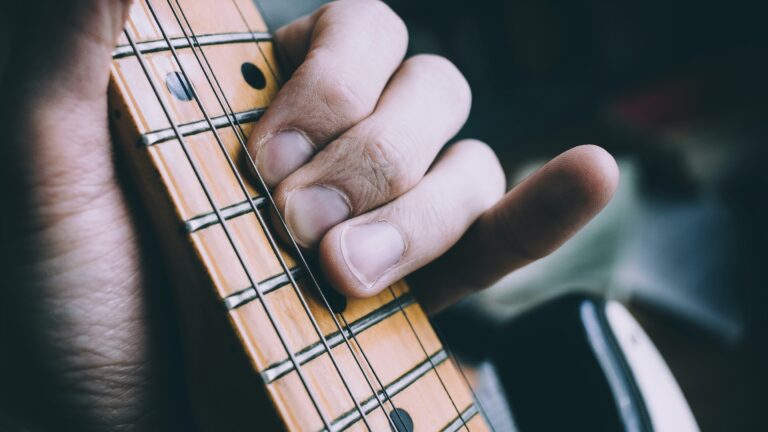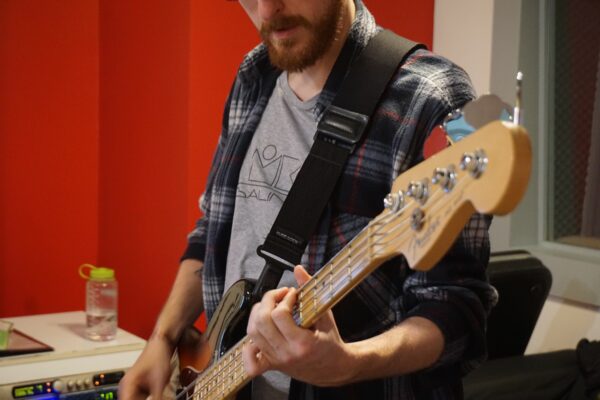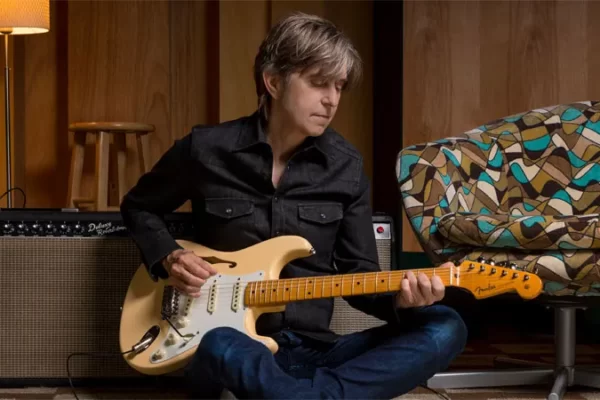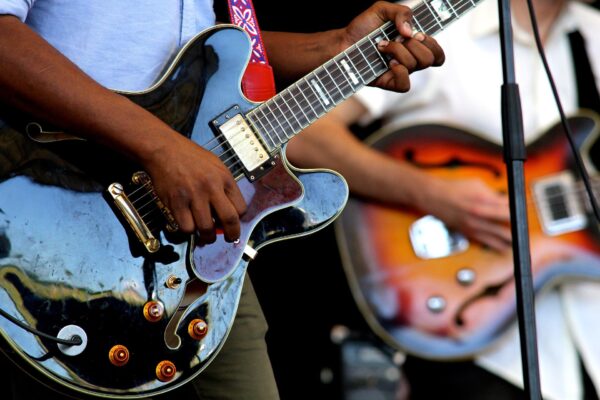Table of Contents
If you are thinking of learning guitar you are wondering if guitar calluses formed by constantly playing are permanent? Or do guitar calluses go away? Or do they need to be periodically removed with a pumice stone or file?
In this article, we will go over some of the most common questions about guitar calluses going away.
Do guitar calluses go away or are they permanent?
Once you have developed guitar calluses it is nearly impossible for them to completely go away. Even if you stop playing guitar for a long time, your fingertips will still feel somewhat hard.
However, if you stop playing guitar as time goes by your guitar calluses will start disappearing, but they never go completely away. In the same way, the sensitivity you lose on the fingertips from playing guitar will not completely come back. Although it may improve if you stop playing guitar it will never be the same as before you started playing.
To prevent your guitar calluses from going away it is very important to practice frequently, especially when you are first learning guitar.
Are guitar calluses permanent?
Guitar calluses are not completely permanent, and they will soften if you take a long break from playing the guitar. Eventually, as time goes by the calluses will be softer and softer. However, they will never completely disappear, even if you stop playing for over a year.
How long do calluses last guitar?
The answer to this question really depends on the individual guitar player, however, if you stop playing guitar for one month, you will notice that your guitar calluses will be a lot softer.
How long does it take for guitar calluses to go away?
For guitar calluses to go almost completely away, it will take around 3 months of not playing guitar. This will be enough for your fingertip skin to become a lot softer, as the new skin cells are produced.
Are calluses good for guitar?
Guitar calluses are essential to playing guitar, and any guitar player has to develop them. The reason is that the friction between the fingertip skin and the metal strings hardens the skin and creates what we call guitar calluses.
To be able to play for long periods of time without the fingers hurting, it is necessary to develop guitar calluses. This is done by constant practice, however, you want to avoid pushing yourself to the limit because your fingers can start to bleed.
Do guitar calluses fall off?
No, guitar calluses do not fall off, instead, you will notice a few different layers of dry skin start to peel off. Guitar calluses also do not “fall off”, but instead they can get softer if you stop playing for long periods of time.
You can also use some hand cream to make sure you restore your skin and preserve your guitar calluses.
Are guitar calluses harmful?
Although guitar calluses are not harmful, because they are somewhat reversible if you stop playing, you will still notice a loss in sensitivity in your fingertips. This can be annoying, especially if you just started learning guitar.
If you stop playing for several months, you will notice that your fingertip sensitivity will improve, but it will never be the same as before you started learning how to play guitar.
You also want to avoid playing when your fingertips are hurting a lot, because it can make your fingertips bleed, and it will create wounds.
Should you use a pumice stone or file on your guitar calluses?
While some guitar players use both a pumice stone and a file to treat their guitar calluses, this is not the best approach. The best way to make sure you repair your skin is to use hand cream and moisturize those skin layers that can get dry by constantly playing guitar.
You want to avoid a file or a pumice stone because you are just applying even more friction on your fingertips.
Conclusion
Guitar calluses are an essential part of the guitar learning process. If you are struggling as a beginner guitarist, you need to understand that it is normal to feel pain in your fingertips, and it might be uncomfortable for a while. However, as time goes on, and you practice more and more, the pain will completely go away.

I have been playing guitar for the past 15 years, and my knowledge and passion for guitars prompted me to start Guitaresque to share my knowledge, tips, and tricks with other guitar players. The sole purpose of this website is to help and inspire guitar players worldwide, to improve their playing and their love for guitars.










